这种病治不好,但不可怕
12月1日是第33个“世界艾滋病日” 。 关于艾滋病和艾滋病毒 , 你了解多少?你知道如何有效地预防艾滋病感染吗?当一个艾滋病毒携带者站在你面前并希望拥抱你 , 你会张开双臂吗?
CGTN“世界艾滋病日”科普策划 , 去伪存真 , 带你了解真实的艾滋病 。
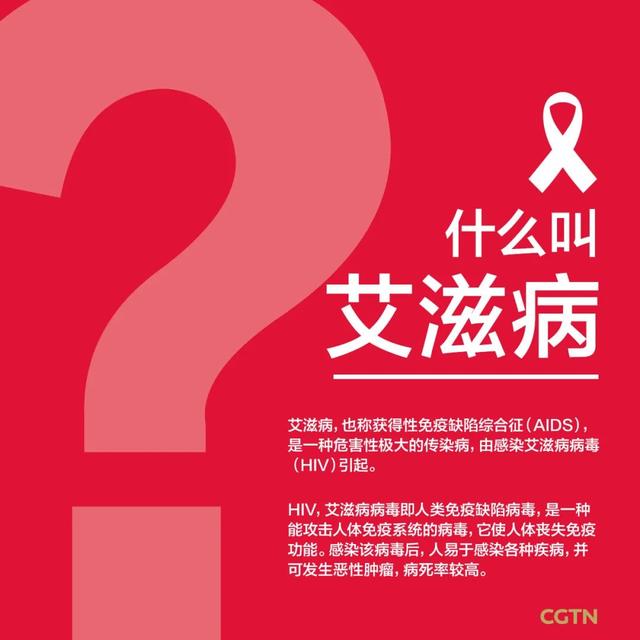 文章插图
文章插图
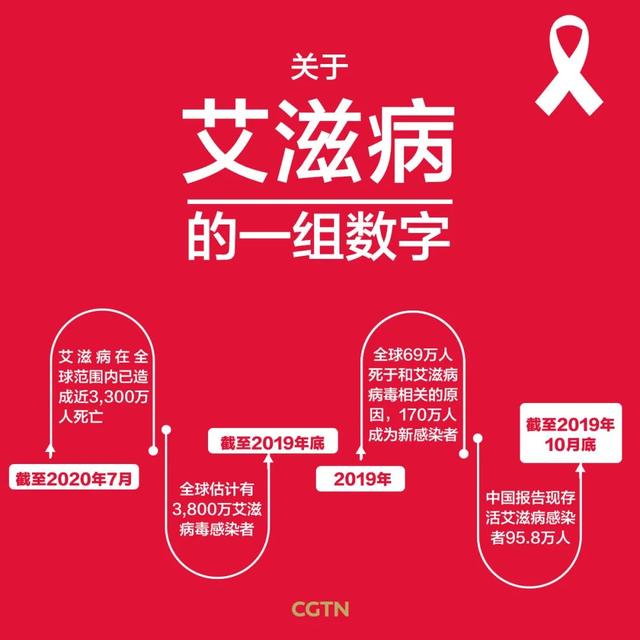 文章插图
文章插图
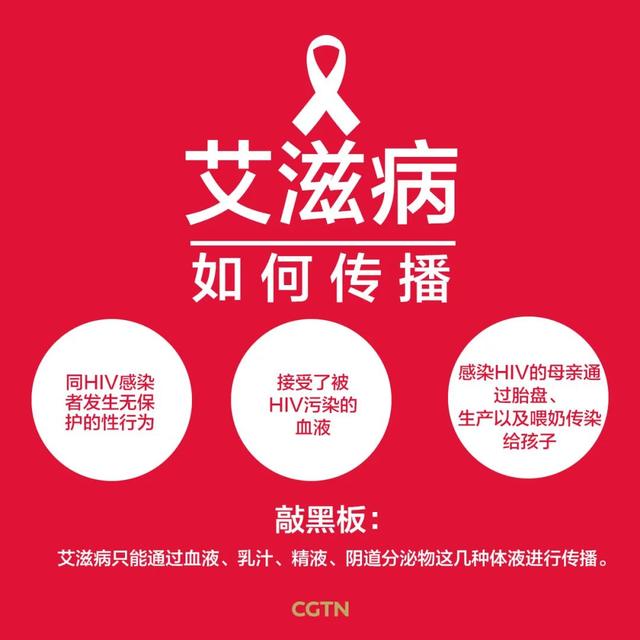 文章插图
文章插图
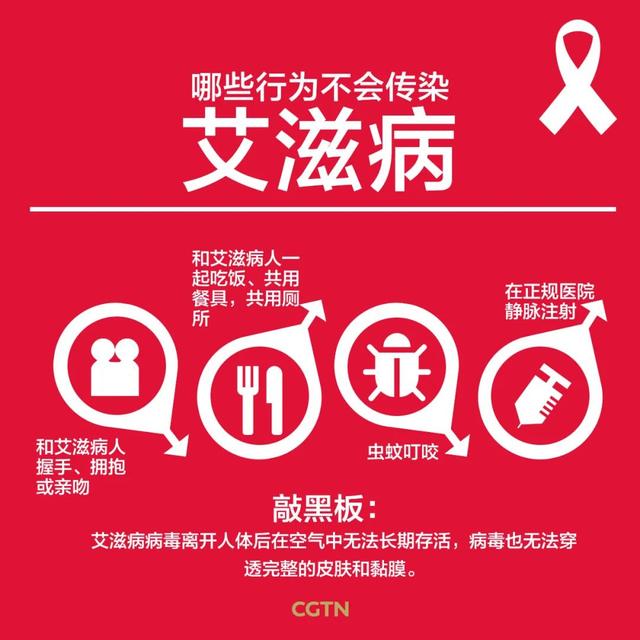 文章插图
文章插图
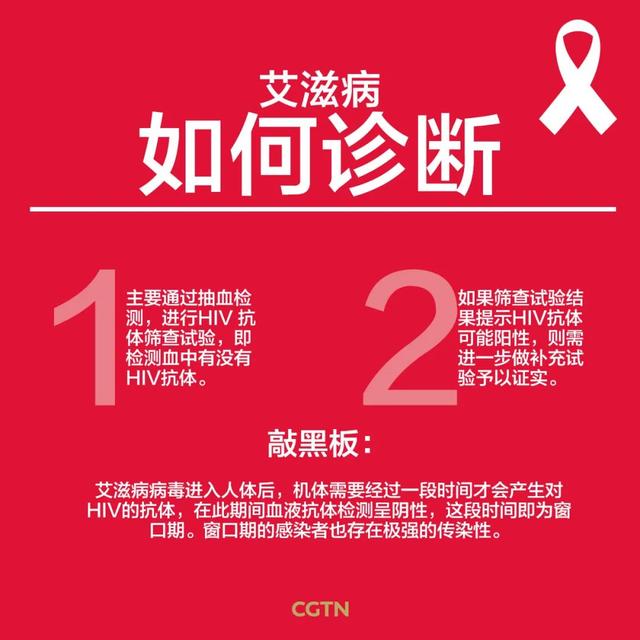 文章插图
文章插图
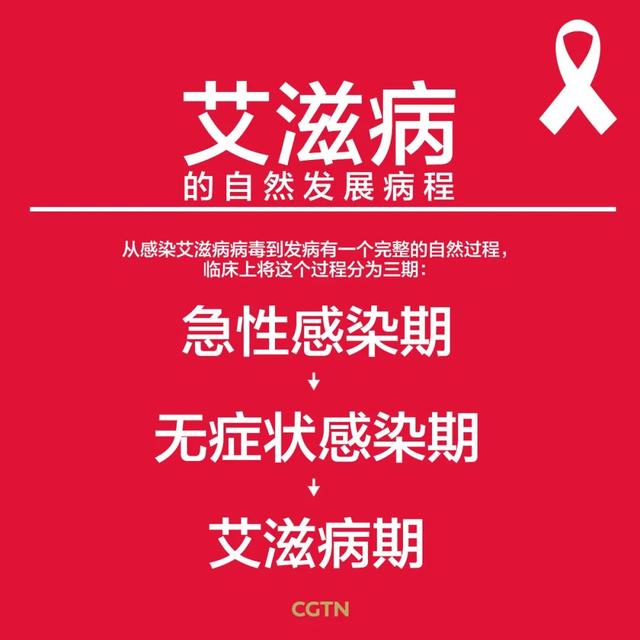 文章插图
文章插图
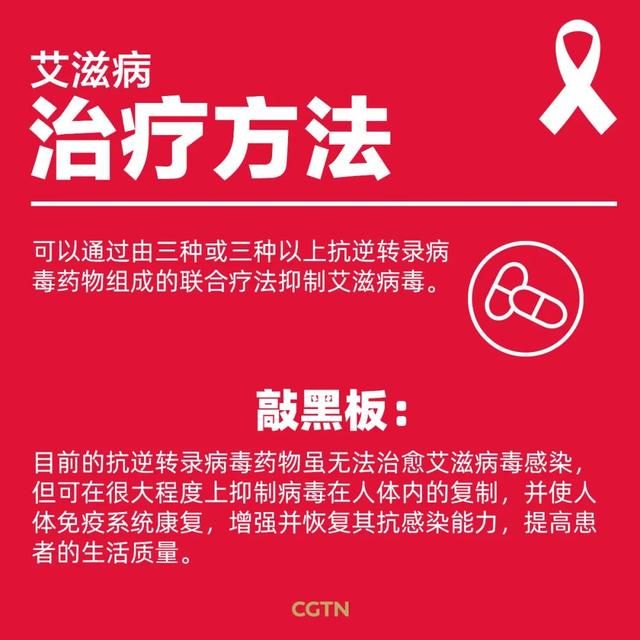 文章插图
文章插图
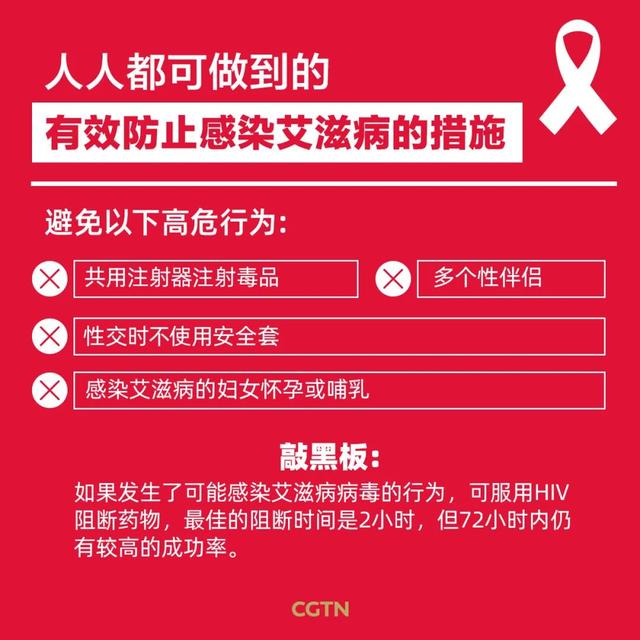 文章插图
文章插图
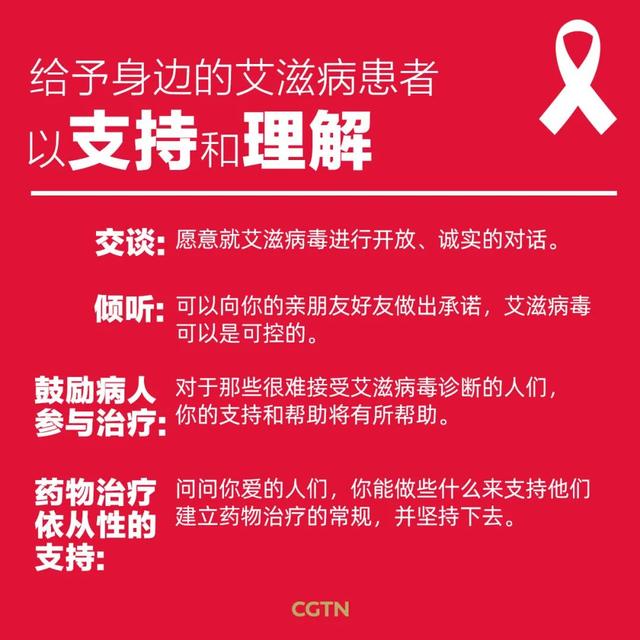 文章插图
文章插图
What is AIDS?
Acquired immunodeficiency syndrome (AIDS) is a chronic, potentially life-threatening condition caused by the human immunodeficiency virus (HIV).
HIV is a virus that attacks cells that help the body fight infections, making a person more vulnerable to other infections and diseases.
AIDS in numbers
AIDS had caused nearly 30 million deaths across the globe by July 2020.
Globally, an estimated 37.9 million people were living with HIV in 2019.
Around 690,000 people died from AIDS-related illnesses worldwide in 2019.
In China, 958,000 people were living with HIV as of October 2019.
How is HIV transmitted?
HIV can be transmitted sexually through semen or vaginal secretion if no protection is used.
It can also be spread by contact with infected blood or from mother to child during pregnancy, childbirth, or breast feeding.
How is HIV not transmitted?
People can't catch HIV or AIDS through ordinary contact such as hugging, kissing, shaking hands, or sharing dishes or toilet seats with someone who has the infection.
HIV does not spread through insect bites.
Intravenous injections in hospitals are safe.
How is HIV diagnosed?
Most HIV tests detect antibodies. In general, blood samples are requested for antibody screening tests.
If one tests positive, supplementary tests are required.
It is important to note that there's a window between exposure to HIV and a positive test.
What are the different stages of HIV?
People may experience three stages of the disease: acute HIV infection, clinical latency, and AIDS.
AIDS treatment
HIV can be suppressed through combined therapy consisting of three or more antiretroviral drugs.
Although current antiretroviral drugs cannot cure HIV infection, they can to a large extent inhibit the replication of the virus in the human body and make the immune system recover, enhance and restore its ability to fight infections, and improve the patients' quality of life.
- 崩溃!20岁姑娘未婚未育,突然有了这种“能力”……医生:要警惕
- 甘油三酯和脂蛋白a都偏高怎么办?试试这种全能降脂药:阿昔莫司
- 过敏性鼻炎宝宝过冬到底有多难?治不好又死不了
- 让心血管疾病死亡率降低26%,57万人研究数据指向这种蔬菜
- 警惕!比跷二郎腿更伤身体,这种坐姿很多人喜欢
- 差点瞎了!杭州大伯眼前总有黑影,医生:这种病破坏力极大
- 世界卫生组织声明:这种零食会加重失眠,可很多人还在天天吃
- 全国心衰日:比衰老更可怕的是,这种“心脏癌症”你却一无所知
- 这种食物几乎人人都吃过,擅长安脾胃、辟寒湿,通一身不畅之气
- 孩子“中邪”,家长花40多万“驱邪”!去医院检查却是这种病
